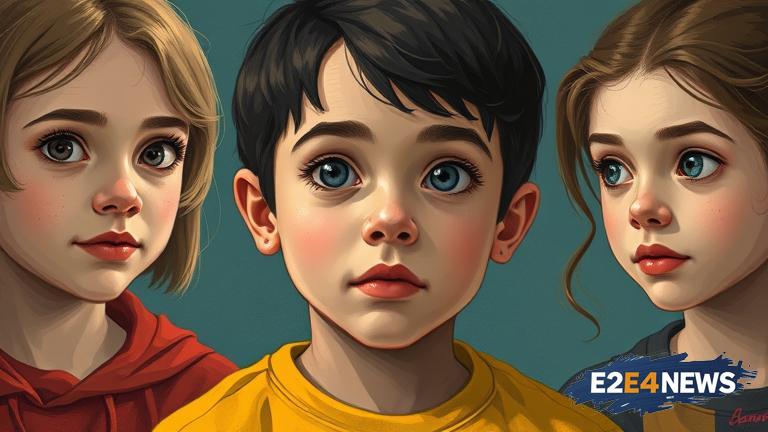The term ‘Gen Z stare’ has been coined to describe the often glazed-over expression of younger individuals, particularly those born between 1997 and 2012. This phenomenon has sparked debate among experts, with some attributing it to the constant exposure to screens and the resulting desensitization to the world around them. Others, however, believe that the Gen Z stare is a sign of a deeper issue, one that requires a more nuanced understanding of the complexities of the human mind. As the world becomes increasingly fast-paced and technology-driven, it’s possible that the younger generation is simply overwhelmed, leading to a sense of disconnection from their surroundings. On the other hand, the Gen Z stare could be a manifestation of a growing trend towards introspection, with young people turning inward to navigate the challenges of modern life. Research has shown that Gen Z is more likely to prioritize mental health and self-care, suggesting that the stare may be a sign of a more thoughtful and contemplative approach to life. Furthermore, the rise of social media has created a culture of curated perfection, where individuals feel pressure to present a flawless online persona. This can lead to feelings of anxiety and disconnection, causing young people to withdraw into themselves. Despite the potential negative connotations, the Gen Z stare may also be a sign of resilience and adaptability, as young people learn to cope with the demands of a rapidly changing world. In fact, many experts believe that the younger generation is more empathetic and open-minded than previous generations, with a greater willingness to engage in meaningful conversations and challenge societal norms. The Gen Z stare may also be a reflection of the growing awareness of social and environmental issues, with young people feeling overwhelmed by the weight of responsibility to create a better future. As the world continues to evolve, it’s essential to approach the Gen Z stare with a sense of curiosity and understanding, rather than simply dismissing it as a sign of disconnection. By doing so, we may uncover a more profound insight into the minds of the younger generation, and gain a deeper understanding of the complexities of the human experience. Ultimately, the Gen Z stare is a complex phenomenon that requires a multifaceted approach, one that takes into account the various social, cultural, and technological factors that shape the lives of young people. As we move forward, it’s crucial to prioritize empathy and understanding, and to create a supportive environment that allows the younger generation to thrive. The Gen Z stare may be a call to look inward, but it’s also a reminder of the importance of human connection and community in navigating the challenges of modern life. By embracing this complexity, we can work towards creating a more compassionate and inclusive society, one that values the unique perspectives and experiences of all individuals, regardless of age or generation.





